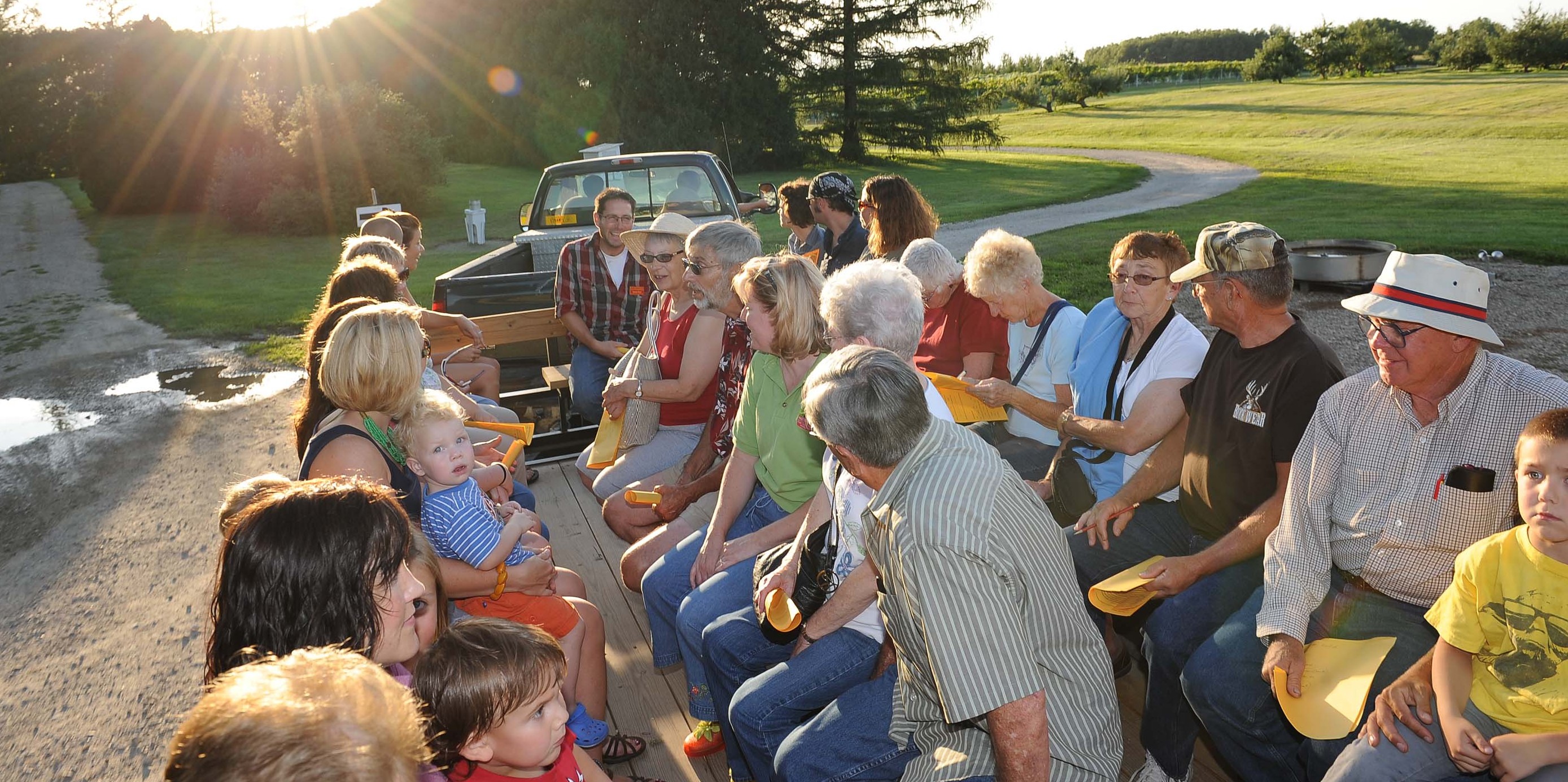
Show And Tell…and Taste
Whether it’s sampling new varieties of tomatoes right from the garden or seeing the latest techniques for growing muskmelons, the Research and Demonstration Farms show Iowans they can grow their own food.
Each summer Iowa gardeners get a chance to preview plants to grow the next year at field days at the farms’ Home Demonstration Gardens.
“If tomatoes are ready we’ll do a taste testing of different cultivars or varieties. We had hot peppers one year and people loved doing a taste test to see which one met their needs,” says Cindy Haynes, associate professor of horticulture, who coordinates the project.
One of this year’s goals for the field days was to get children more involved in gardening with several flowers and vegetables named after storybook characters. A blight-resistant tomato, a new variety of sweet corn and a seedless cucumber were included for grown-up gardeners.
Home Demonstration Garden field days were held this year at the Armstrong, Northeast, Muscatine Island, Northern and Horticulture Station Research Farms. The Muscatine Island Research Farm, in the eastern border town of Fruitland, got its start helping melon growers, who raise muskmelons that bear the name of the area.
Haynes says the farm also contains the state’s only All-American Selections (AAS) trial site that grows new varieties of vegetables to see how they perform. If they are judged ready for gardens they are released to suppliers.
Vince Lawson, superintendent of the Muscatine Island farm, says the most interest is focused on projects dealing with sweet corn and vine crops, like cucumbers, squash, pumpkins and melons. The garden spot, which uses irrigation on the area’s sandy soils, also has projects involving tomatoes, potatoes, cherry trees and watermelons.
On the other side of the state, the Armstrong farm near Lewis also has a number of projects devoted to food production, many involving a high tunnel, a hoop structure that allows growers to extend the growing season. The farm also is an AAS display garden that showcases the newest winners.
The farm’s greenhouse has served as an educational tool for local vegetable producers allowing them to rent space and learn about greenhouse management and plant propagation. Bernie Havlovik, Armstrong farm superintendent, says there also are several outdoor vegetable trials including using farm compost as fertilizer, companion crops for pest control and growing marginally hardy blackberries with a collapsible trellis.
The Neely-Kinyon farm, affiliated with Armstrong, specializes in alternative agricultural approaches including projects that grow organic vegetables under no-till, mulched, tilled and with cover crops soil treatments as well as an organic grape trial.
“All our horticultural research is scaleneutral,” says Kathleen Delate, professor and organic crops specialist in the horticulture and agronomy departments. “Practices used in the experiments—planting, fertilizing, pest management—follow what a commercial grower and a homeowner can do for organic production.”
At the Horticulture Station near Ames, superintendent Nick Howell says most of its projects are applied research geared to commercial growers, many who want to fill the demand created by the local food trend. “What you end up with is data that’s useful and practical for a grower,” he says.
One example is a research project to see how long strawberries can be grown into the fall using a high tunnel. Another produced a dozen crops last summer to determine if high-value crops would justify a tunnel’s crops.
Click here for Cindy Haynes’ zucchini bread recipe.



